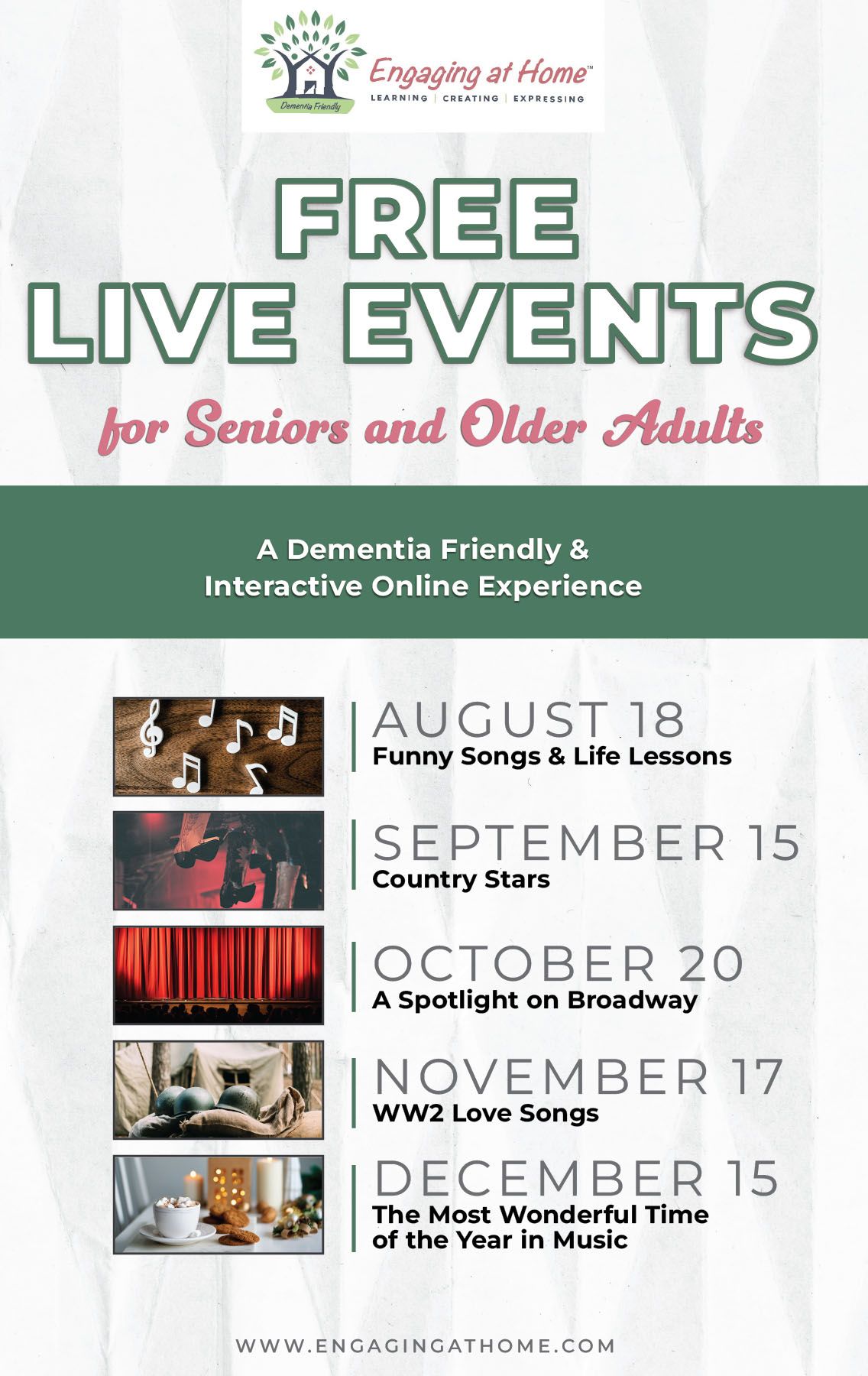
Where
would we be without the ability to communicate with one another? Our words,
alone, carry so much power and meaning behind them. But what happens when our
ability to convey and receive messages becomes roadblocked?
On average, six million Americans and their caregivers experience challenges in communication each day. As dementia progresses, we recognize how losing the ability to communicate can quickly become one of the most frustrating and difficult problems for you and your loved one. During conversations, you might notice how your loved one has trouble finding the right words, falls into repetition, or uses words or phrases that make little sense. Your loved one might also only be able to grasp certain parts of what you are saying, become frustrated when they do not understand, or maybe not respond to you at all.
The Alzheimer's Society refers to the implications of losing effectiveness in verbal communication, stating, "If the person with dementia is not able to express themselves, they can lose confidence, feel anxious or depressed, or become withdrawn."
As their caregiver, we know you want to make sure your loved one is always met with assurance and compassion, and it is easy to rely on words to deliver that deeply important message. Add to the list any changes in vision or hearing capabilities, and it might seem like the barriers of communication are stacked a mile high – but there is still hope for creating a safe and comfortable environment for self-expression!
When words begin to fail, let your actions speak by leaning more into the varying forms of non-verbal communication. In an episode of Real Talk with Rosemary, registered nurse and dementia expert Rosemary Fuller states, "When you can't talk anymore with your words, you rely upon your feelings. You rely upon the things you know [such as] how a person speaks and how loudly they speak."
Not only do we experience non-verbal communication almost every minute of every day, but there is also a strong relationship between the quality and amount of non-verbal communication we all use and how others interpret our motives. For instance, our eyebrows shoot up to convey when we are excited, we yawn to indicate when we are tired, and our bodies can even appear frigid and closed off when we cross our arms across our chests.
According to Dr. Albert Mehrabian, a renowned behavioral psychologist, only 7% of all communication is done through verbal communication. In comparison, the tonality of our voice and body language makes up the remaining 38% and 55%, respectively.
Non-verbal cues are one of the most highly reliable ways to reestablish an open and understanding communication channel for you and your loved one. When having a conversation with your loved one, Samvedna Senior Center suggests letting them know they have your full attention by making and maintaining eye contact with them. They also suggest being aware of your loved one's body language as you observe their actions, listen to their words carefully, and give them time to find their words without interruption.
It is also necessary to be aware of your own body language. Samvedna suggests not standing directly over the top of your loved one but instead getting down on their level. When you notice changes in your loved one's behavior, such as sadness, anxiety, or discomfort, provide them with a form of physical touch, like a hug, to let them know you are there and recognize what they may be feeling.
Although these simple gestures might seem like a small token, know that even a warm smile or the feeling of your hand laid gently on top of theirs has the power to speak a million words full of love, empathy, and understanding.
Engaging at Home™ helps caregivers to feel empowered by offering ways to have meaningful engagement with loved ones who have cognitive impairment. We provide narrated videos, activities, seated wellness and fitness videos, and more. Click here for a free 14-day trial.
On average, six million Americans and their caregivers experience challenges in communication each day. As dementia progresses, we recognize how losing the ability to communicate can quickly become one of the most frustrating and difficult problems for you and your loved one. During conversations, you might notice how your loved one has trouble finding the right words, falls into repetition, or uses words or phrases that make little sense. Your loved one might also only be able to grasp certain parts of what you are saying, become frustrated when they do not understand, or maybe not respond to you at all.
The Alzheimer's Society refers to the implications of losing effectiveness in verbal communication, stating, "If the person with dementia is not able to express themselves, they can lose confidence, feel anxious or depressed, or become withdrawn."
As their caregiver, we know you want to make sure your loved one is always met with assurance and compassion, and it is easy to rely on words to deliver that deeply important message. Add to the list any changes in vision or hearing capabilities, and it might seem like the barriers of communication are stacked a mile high – but there is still hope for creating a safe and comfortable environment for self-expression!
When words begin to fail, let your actions speak by leaning more into the varying forms of non-verbal communication. In an episode of Real Talk with Rosemary, registered nurse and dementia expert Rosemary Fuller states, "When you can't talk anymore with your words, you rely upon your feelings. You rely upon the things you know [such as] how a person speaks and how loudly they speak."
Not only do we experience non-verbal communication almost every minute of every day, but there is also a strong relationship between the quality and amount of non-verbal communication we all use and how others interpret our motives. For instance, our eyebrows shoot up to convey when we are excited, we yawn to indicate when we are tired, and our bodies can even appear frigid and closed off when we cross our arms across our chests.
According to Dr. Albert Mehrabian, a renowned behavioral psychologist, only 7% of all communication is done through verbal communication. In comparison, the tonality of our voice and body language makes up the remaining 38% and 55%, respectively.
Non-verbal cues are one of the most highly reliable ways to reestablish an open and understanding communication channel for you and your loved one. When having a conversation with your loved one, Samvedna Senior Center suggests letting them know they have your full attention by making and maintaining eye contact with them. They also suggest being aware of your loved one's body language as you observe their actions, listen to their words carefully, and give them time to find their words without interruption.
It is also necessary to be aware of your own body language. Samvedna suggests not standing directly over the top of your loved one but instead getting down on their level. When you notice changes in your loved one's behavior, such as sadness, anxiety, or discomfort, provide them with a form of physical touch, like a hug, to let them know you are there and recognize what they may be feeling.
Although these simple gestures might seem like a small token, know that even a warm smile or the feeling of your hand laid gently on top of theirs has the power to speak a million words full of love, empathy, and understanding.
Engaging at Home™ helps caregivers to feel empowered by offering ways to have meaningful engagement with loved ones who have cognitive impairment. We provide narrated videos, activities, seated wellness and fitness videos, and more. Click here for a free 14-day trial.



